Refugee crisis: What life is really like inside the 'Jungle’ in Calais
The Independent's correspondent Joseph Charlton spent three days in the notorious refugee camp
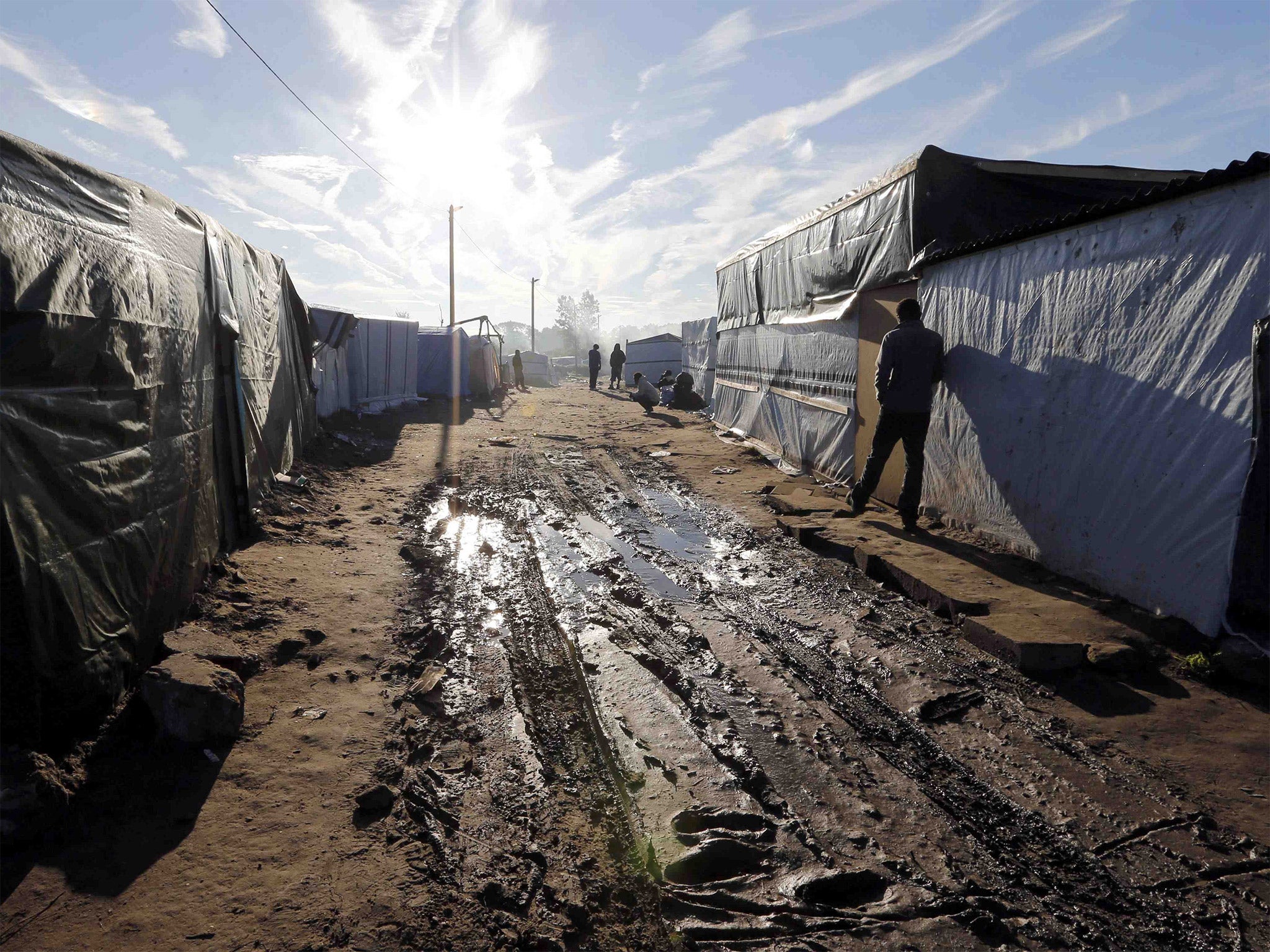
Your support helps us to tell the story
From reproductive rights to climate change to Big Tech, The Independent is on the ground when the story is developing. Whether it's investigating the financials of Elon Musk's pro-Trump PAC or producing our latest documentary, 'The A Word', which shines a light on the American women fighting for reproductive rights, we know how important it is to parse out the facts from the messaging.
At such a critical moment in US history, we need reporters on the ground. Your donation allows us to keep sending journalists to speak to both sides of the story.
The Independent is trusted by Americans across the entire political spectrum. And unlike many other quality news outlets, we choose not to lock Americans out of our reporting and analysis with paywalls. We believe quality journalism should be available to everyone, paid for by those who can afford it.
Your support makes all the difference.The first thing we see is a heap of high heels and baby shoes. Then, next to that, a pile of rain-soaked duvets and a few abandoned teddy bears. It's reminiscent of the sepia photos of clothes and glasses from the concentration camps, but the piles here are kept in even less order. Amelia Iraheta, an American volunteer picks up an ankle-high red leather boot. “I mean, who the hell thought this would be a good idea?” she says, before chucking it back on the heap.
Mismanaged efforts at altruism are piling up around the porous border of the “Jungle”, the name given to the camp outside Calais which has become a temporary home to around 3,000-4,000 men, and about 350 women and children. The piles are good to no one: the result of spontaneous drop-offs from British and French nationals who drive to the camp at weekends with cars and vans full of donations.
“It's a disaster,” says Amelia. “They come with a car full of unsorted stuff, they don't tell any of the volunteer organisations here, they open the boot and then the stuff just gets raided and chucked around in the chaos – it's not the way to donate.”
The breadth of waste is astounding. A few hundred metres from the Jungle's entrance, in the district of camp named “Sudan” (it contains mainly Sudanese refugees), there is a swamp of T-shirts, jeans, socks and underwear. There was a torrential downpour the night before and the contents of an unplanned truck drop-off float sadly on the water's surface. “If they'd checked in with one of the organisations before they arrived, we could have sorted this in the warehouse and then distributed it,” says Olivia Long, a UK volunteer who's been here for two weeks. A refugee pokes around in the debris looking for anything salvageable. Tarpaulin and shoes are the most useful finds: tarpaulin because it reinforces the homemade shelters being erected, shoes because many travelled here in flip-flops.
I'm camping in the part of the camp known as “No Borders”. No map exists for the Jungle, but this area is known as “mixed”, and our tent is pitched between some Iranians, Kurds and Sudanese, and a UK group documenting incidents of police brutality at the ferry and train terminal at night. I've come down with a friend who has raised £1,500 to donate to CalAid, one of the small volunteer operations here. He's also filled up a van with guitars, footballs and cricket sets – the last of which is enthusiastically accepted by a group of Afghan children living in the camp.
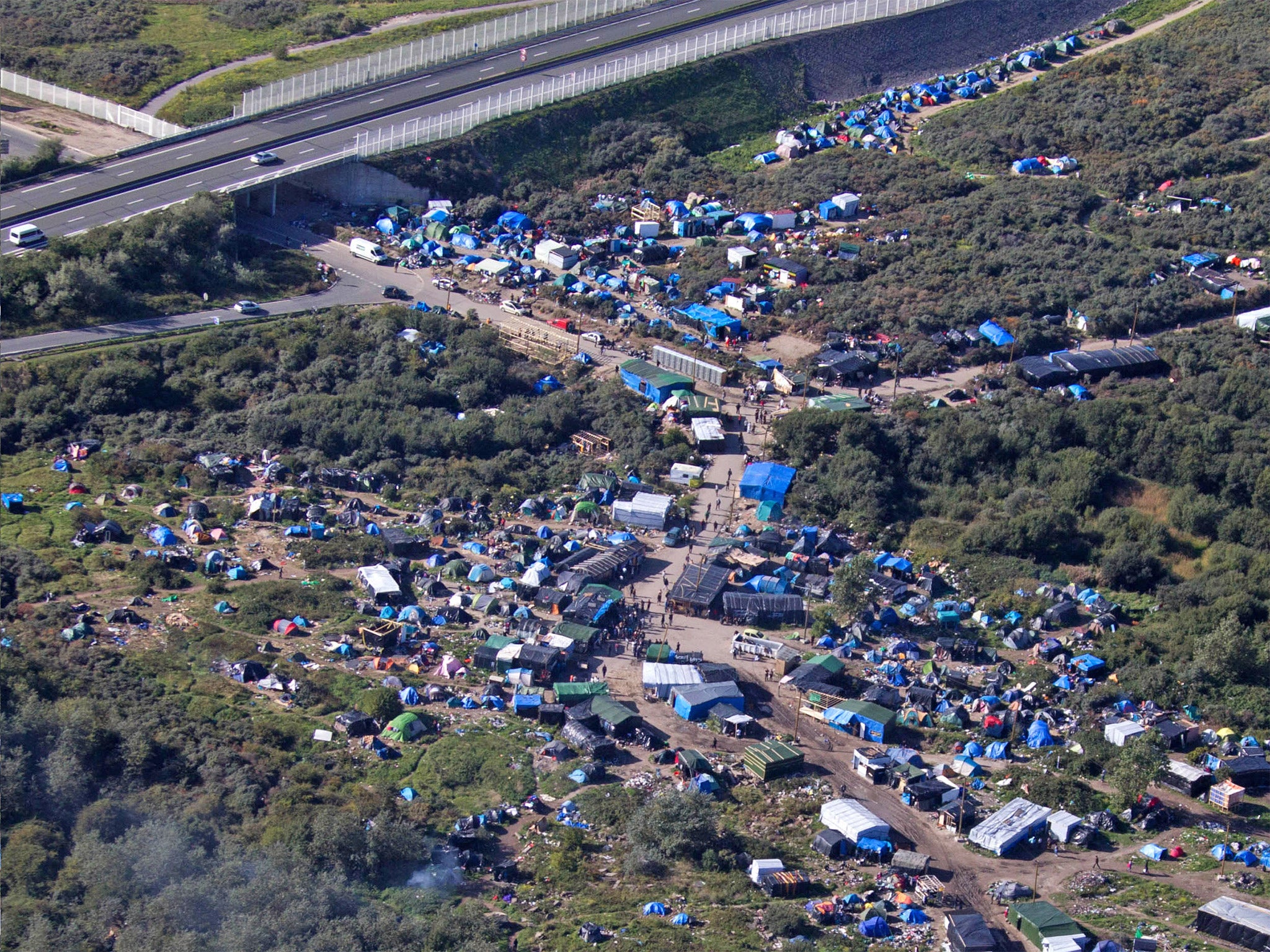
“Afghanistan”, the second largest area of the camp after Sudan, regularly holds cricket matches in the camp – sometimes involving the neighbours in “Pakistan”. The layout of the camp imitates, to a degree, the geography of the world map: Afghanistan neighbours Pakistan, while elsewhere Eritrea borders Ethiopia.
Several misconceptions surround the camp. Syria is not currently the most represented nation here, though volunteers say greater numbers are arriving from the Levant every day. (There is a lag between world conflicts and the time it takes for refugees to arrive in the camp, meaning yesteryear's fleeing Afghans and Sudanese are today's recent arrivals.) Given the number of Syrians now displaced, however, grim forecasters might well predict the Syria of the Jungle will soon rival the size of Sudan and Afghanistan.
Neither, as is often supposed, is the Jungle new. The original camp came into being about eight years ago (its first inhabitants apparently Afghans) but the site moved last year due to flooding. Since then, say volunteers, the population has doubled.
I ask Olivia, our guide, why this place is called the Jungle – naively expecting the name to have been imposed on the camp by outsiders in an act of approximate racism. “The refugees use it themselves because they hate it,” she says. “They use it to get across that they are treated like animals here. As volunteers here, we are careful to always try and say 'the camp', but they correct us. They want people to know the conditions here.”
An Ethiopian woman who wishes to remain anonymous confirms this to me later. “No jungle!” she shouts. “A jungle is for animals – we are people. Can't people see that we are people?”
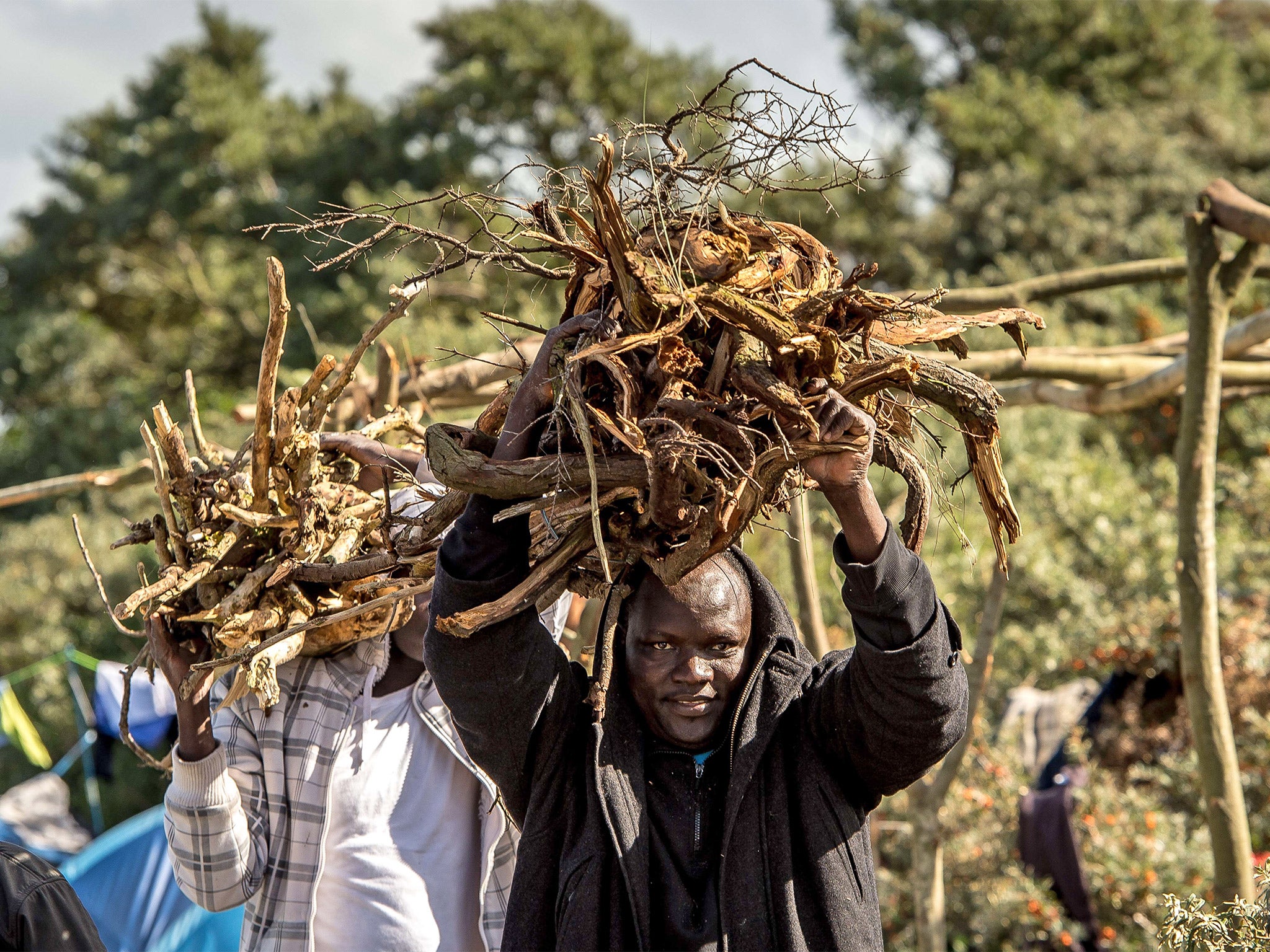
The local authorities, apparently, can not. The day we leave, a row of tents that has spilt out of the packed camp on to the side of the road is bulldozed without warning, under the watchful eye of police in riot gear. Belongings, identification papers and dozens of passports are destroyed. And scores of people – mostly Syrian and Sudanese – are forced to sleep outside in the rain that night, their tents and few possessions having been demolished in the process. The next day, some youths protest against the action, and an imam trying to keep the peace between them and the riot police is hit in the stomach by a rubber bullet. Others fall back after being hit by tear gas.
Everyday conditions in the camp are similarly dehumanising. Sanitation ranges from appalling to non-existent; and all of the 20 or so mobile lavatories (provided by French government aid) that we visit are overflowing with faeces. Olivia complains that waste disposal has slowed in the past month, even as the size of the camp exponentially grows day by day.
No jungle! A jungle is for animals – we are people. Can’t people see that we are people?
Outside of the lavatories, human shit litters every “path” of the camp. Gangrene and dysentery are common and there is a pressing fear that healthcare in the camp will disappear entirely before Christmas. Doctors of the World, the group providing onsite care, are currently funded only until December. Food is similarly scarce. Olivia says that government aid provides a single service of 2,000 hot meals per day, but there is currently double that number of people in the camp.
Put simply, this is an exclave of a sub-third-world country. It shames the UK and French government in equal measure. Say what you will on the immigration debate, but to knowingly overlook the conditions of a place like this is to condemn its people to a living hell. It contradicts our idea of how basic human rights work within the European Union.
I meet an 11-year-old Egyptian boy called Hossam. He has no family in the camp, and no one is looking after him. He has his own small tent, of which he is apparently “very house-proud”. Some of the volunteers take him to dinner at a makeshift Afghan café. The daily meal served by the government aid organisation is served between 5 and 8pm, but queuing begins at one in the afternoon. Taking Hossam for a €3 paper plate of deep fried chicken and chips will ensure that today he gets fed.
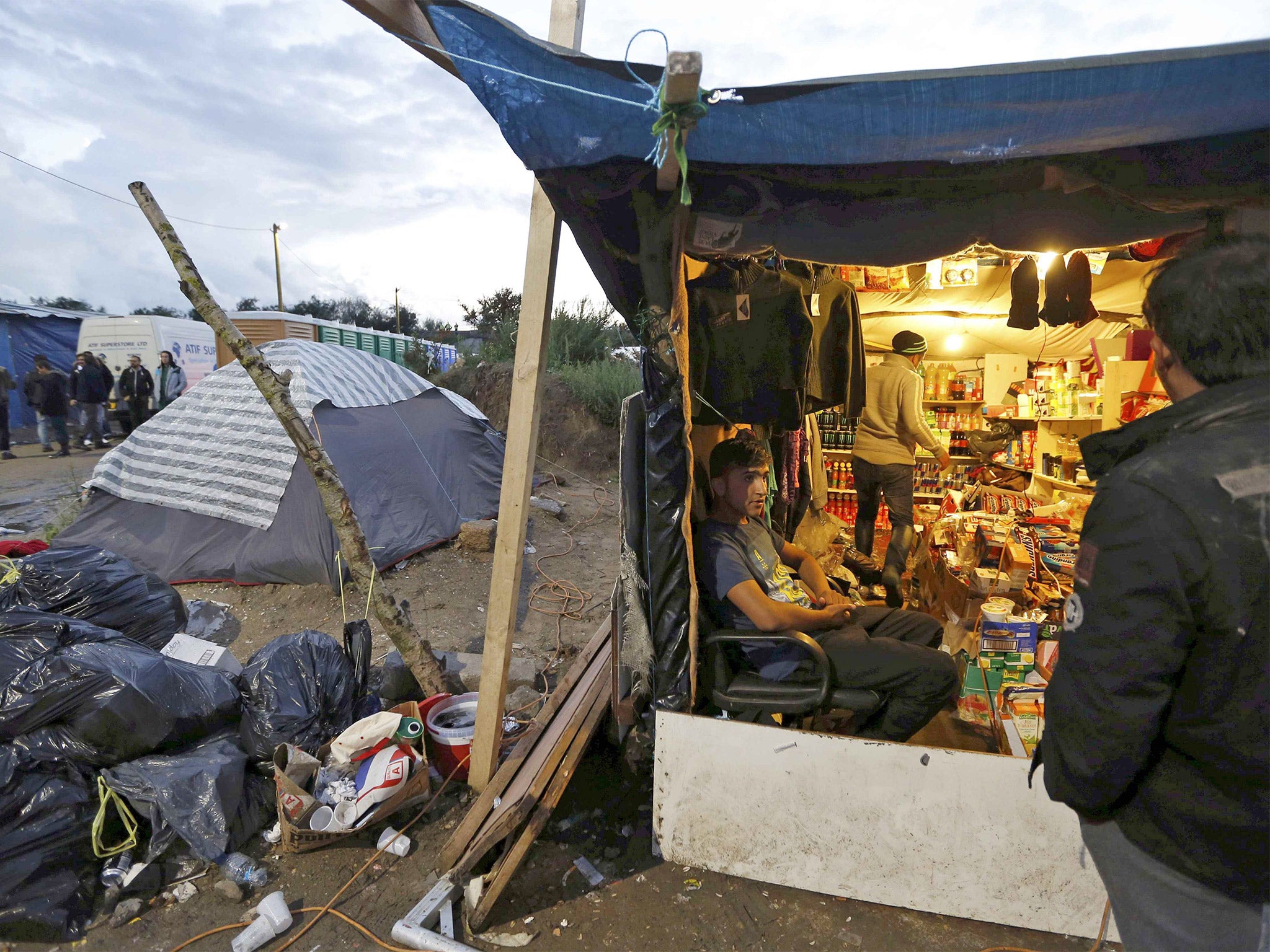
More women and children arrive at the Jungle everyday. The government used to provide an indoor shelter – a building – for them on site, but this week it reached capacity and volunteers say they see more and more forced into sleeping in tents.
At night we visit the Jungle's “Eritrean nightclub” – a kind of farmyard shed-like building made out of wood and tarpaulin. Inside there is low lighting, a multicoloured disco ball, and east African pop music playing. On the tables are shabby shisha pipes, and you can buy cans of 7.9 per cent Perlembourg – mainland Europe's equivalent of Special Brew – for €1 a pop. It's like a direly conceived east London joke, except immeasurably more earnest and sad. Many of the men here come didn't used to drink, but took it up after months of life going nowhere.
I ask Tom Radcliffe, a volunteer who has been fund-raising and coming here since July, for his estimation of the Jungle. “It's like a rock concert,” he says. “It's like a rock concert that's been going on for 10 years where nobody likes the music, and the only way to leave might kill you.”
Is the fear of death credible? The answer, in my three-day experience of the camp, is yes. Most of the migrants and refugees I speak to have spent their savings getting to this point, and a return journey home is as undesirable as it is financially impossible. Saddiq, a former landowner and farmer from Sudan tells me: “I do not have a cent. I can't go back to my farm on the Sudanese border. It's in the heart of the civil war.”
The other option is making “the jump” – what some of the camp's inhabitants refer to as the perilous mission to break into either the Calais ferry terminal or the Eurotunnel at night, in a bid to board boats or freight trains headed to England. Of the two, the Eurotunnel option is both more popular and more dangerous. On the night we arrive two Syrians are electrocuted by the overhead power lines on the tracks. The following day one death is reported by the BBC, the other is not. In an Afghan “café” serving chai and food, a group of Syrian and Kurds pass around a picture of the man whose death has not been reported, singing a song for him in Kurdish.
The BBC says 10 people have been killed on the tracks since June, but reports from volunteers and refugees suggest the number is considerably higher. Gani, the camp's only known Kosovan, has tried making the crossing “about nine times” since reaching Calais. His leg is currently broken in four places from falling from one of the five fences that have been erected to deter break-ins to the Eurotunnel, and he recounts witnessing two deaths there in the previous month. “The last time I was with a Pakistani. He climbed up and the sound went crack” – he claps his hands together hard in imitation of the sound. “He was electrocuted. Gone. Dead.”
Later that day I speak to Hamza, a Syrian who used to teach English literature in Daraa. He, too, has seen death on the tracks. A Syrian friend of his was electrocuted earlier that week, and Hamza similarly uses his hands to imitate the sound of electrocution. It seems the body count is regular, not occasional.
I ask Hamza to describe the situation in his hometown of Daraa – the city where protests against Assad began and which is now fought over between the regime and Isis. “The UK does not understand the situation in Syria,” he says. “Isis are not all bad people like you see on television. They helped oppose the brutality of the Assad regime in our city. Isis is a preferable to live under than the Assad regime. Most of my friends have been kidnapped and tortured by the Assad regime. You would rather die than face that. They flay your skin and take your nails. I will never see them again.”
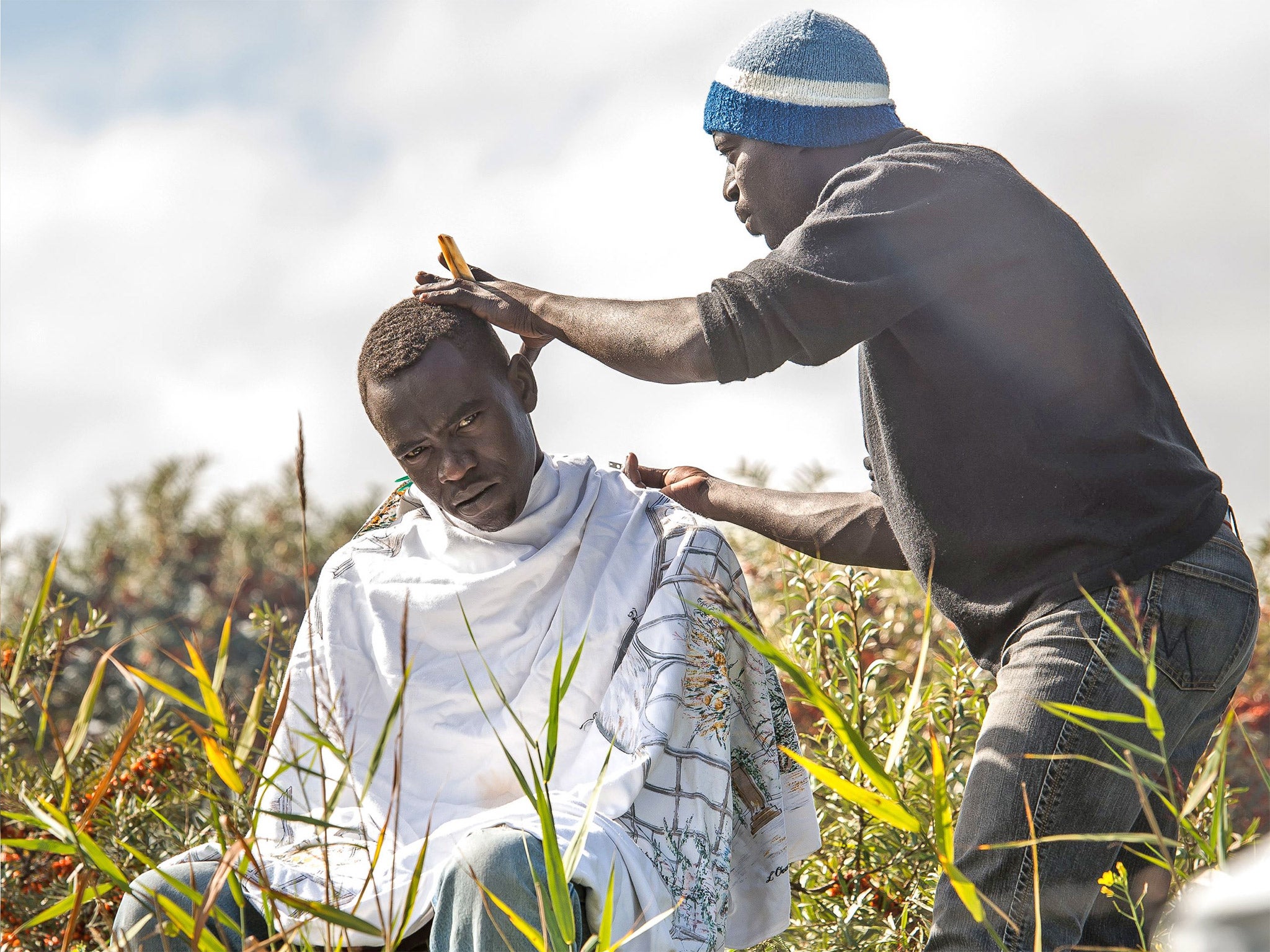
Every discussion with a Syrian here complicates the UK narrative of events in the Middle East. More straightforward conversations between aid workers and refugees tend in a simpler direction.
“Do you have evening plans?” I hear a volunteer-friend blithely ask one of the Kurds we are camping next to. “Yes, we have the same plan every evening,” replies Ramyar, a Kurdish English teacher. He has a wry and sad smile on his face, and gestures at the Eurotunnel terminal eight miles away. Walking there takes two hours each way, and as a result many of the camp's inhabitants spend much of the day sleeping in preparation for the task. Monster and Red Bull cans litter the camp; the majority here don't drink and caffeine is prized above alcohol.
After a meagre three days of helping to organise stock in the volunteers' warehouse, and speaking to refugees in the camp, we get ready to depart. The car has been broken into during the night – one of its windows smashed – and we need to try and claim the insurance in the UK, not the Jungle.
We say goodbye to our Kurdish and Iranian friends in the camp, explaining shamefacedly that we are going back to London for work. Like others we've met, they are keen to swap Facebook details. Everyone here prefers their online avatar to the crabbed existence they live in the camp. A man on crutches, who has hurt himself falling from the Eurotunnel fence says simply: “Don't look at me here in the Jungle. Look at my Facebook, see my girlfriend. I am not what you see here.”
The group of Kurds shake their heads ruefully at the break-in and help us pack up our tent. The goodbye is long and difficult. Not once since we arrived here have any of the dozens we met asked for a stowaway lift in our boot, but now our neighbours look on a little enviously as we pull on to the road. Ramyar, the Kurdish schoolteacher with perfect English, senses our shame and tries to placate it.
“We don't say, 'See you later',” he says, smiling. “We say instead: 'See you there'.”
Some names have been changed
To donate to Doctors Of The World go to: doctorsoftheworld.org.uk/pages/calais-appeal
Join our commenting forum
Join thought-provoking conversations, follow other Independent readers and see their replies
0Comments